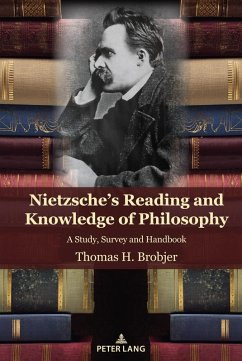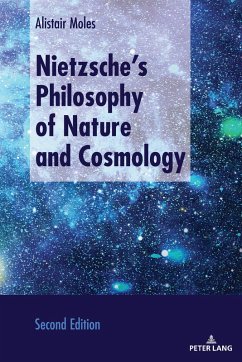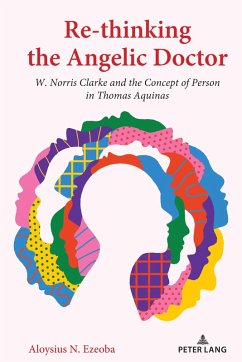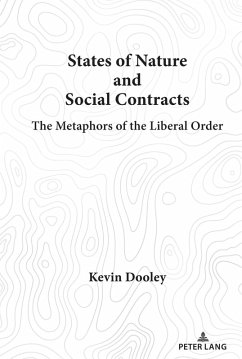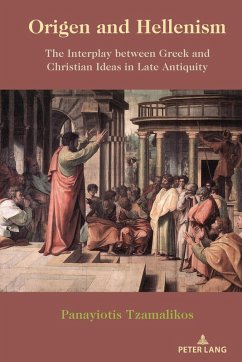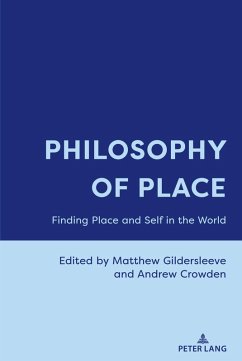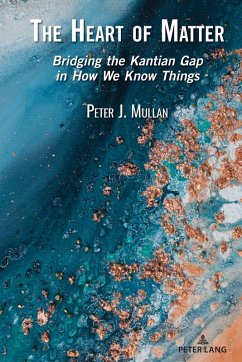
Nietzsche's Reading and Knowledge of Philosophy (eBook, ePUB)
A Study, Survey and Handbook
Versandkostenfrei!
Sofort per Download lieferbar
Statt: 89,95 €**
74,95 €
inkl. MwSt.
**Preis der gedruckten Ausgabe (Gebundenes Buch)
Alle Infos zum eBook verschenkenWeitere Ausgaben:

PAYBACK Punkte
37 °P sammeln!
Nietzsche read far more widely, and more actively, than he led us to believe. Reading was his most important intellectual stimulus: he lived a very isolated life for most of his career, particularly in the 1880s. Much of what Nietzche thought and wrote, therefore, came in response to his reading.This book is an in-depth study of Nietzsche's reading and his knowledge of philosophy and philosophers. It examines his relation to the major European thinkers and Eastern traditions, as well as his knowledge and reading of intellectual women and journals of philosophy.Author Thomas H. Brobjer has gath...
Nietzsche read far more widely, and more actively, than he led us to believe. Reading was his most important intellectual stimulus: he lived a very isolated life for most of his career, particularly in the 1880s. Much of what Nietzche thought and wrote, therefore, came in response to his reading.
This book is an in-depth study of Nietzsche's reading and his knowledge of philosophy and philosophers. It examines his relation to the major European thinkers and Eastern traditions, as well as his knowledge and reading of intellectual women and journals of philosophy.
Author Thomas H. Brobjer has gathered much previously unpublished information about Nietzsche's reading and library, including a great deal about the annotations he made in his books. Nietzsche's Reading and Knowledge of Philosophy will be useful as a handbook for anyone interested in the philosophical context of Nietzsche's thought. It will become an important reference work for all those interested in Nietzsche's philosophy.
This book is an in-depth study of Nietzsche's reading and his knowledge of philosophy and philosophers. It examines his relation to the major European thinkers and Eastern traditions, as well as his knowledge and reading of intellectual women and journals of philosophy.
Author Thomas H. Brobjer has gathered much previously unpublished information about Nietzsche's reading and library, including a great deal about the annotations he made in his books. Nietzsche's Reading and Knowledge of Philosophy will be useful as a handbook for anyone interested in the philosophical context of Nietzsche's thought. It will become an important reference work for all those interested in Nietzsche's philosophy.
Dieser Download kann aus rechtlichen Gründen nur mit Rechnungsadresse in A, D ausgeliefert werden.




